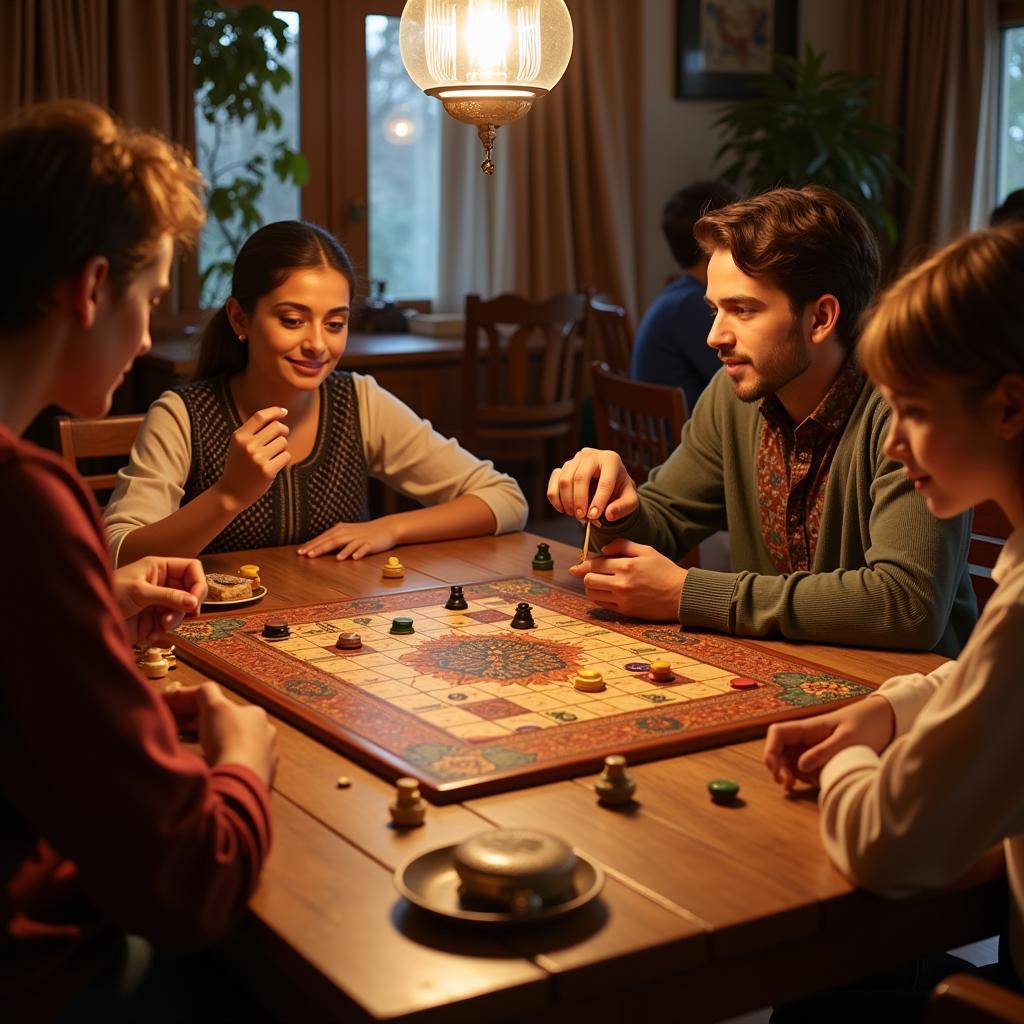Exploring the World of Arabic Board Games
December 31, 2024Arabic Board Games offer a captivating glimpse into the rich history, culture, and strategic thinking of the Arab world. From ancient classics to modern adaptations, these games provide entertainment, challenge, and a connection to a vibrant heritage. They offer a unique window into the past and present, fostering social interaction and cognitive skills.
A Journey Through Time: The History of Arabic Board Games
Many Arabic board games have roots in ancient civilizations, evolving over centuries. Games like Backgammon (Tawle), which can be traced back to ancient Mesopotamia, demonstrate the enduring appeal of strategic dice rolling and skilled piece movement. These games weren’t just pastimes; they often reflected social structures and cultural values. They provided a space for social gathering, friendly competition, and the sharpening of intellectual abilities.
The Cultural Significance of Arabic Board Games
Arabic board games are more than just games; they are an integral part of the cultural fabric. They are often played during social gatherings, holidays, and family events, reinforcing bonds and fostering a sense of community. These games provide a platform for intergenerational connection, passing down traditions and values from elders to younger generations.
 Arabic Board Games and Cultural Significance
Arabic Board Games and Cultural Significance
Popular Arabic Board Games: From Tawle to Mancala
Several Arabic board games have gained popularity across the globe. Tawle, with its intricate rules and fast-paced gameplay, remains a beloved favorite. Mancala, another ancient game with variations across the Arab world, offers a captivating challenge of strategic seed sowing and capturing. These games, and many others, showcase the diversity and ingenuity of game design within the Arabic tradition.
Playing Tawle: A Game of Skill and Chance
Tawle, also known as Backgammon, is a game of skill, strategy, and a touch of luck. Players roll dice to determine their moves, aiming to bear off all their checkers before their opponent. The game requires quick thinking, careful planning, and the ability to adapt to changing circumstances. Mastering Tawle takes time and dedication, but the satisfaction of a well-played game is unmatched.
“Tawle is not just about rolling dice; it’s about reading your opponent, anticipating their moves, and taking calculated risks,” says Dr. Fatima Al-Khalifa, a prominent scholar of Arabic games and culture.
The Modern Revival of Arabic Board Games
In recent years, there has been a resurgence of interest in Arabic board games. Modern adaptations, innovative designs, and online platforms have brought these games to new audiences. This renewed interest not only preserves cultural heritage but also introduces the strategic depth and social enjoyment of these games to a wider global community.
“The beauty of Arabic board games lies in their ability to transcend time and connect people across generations and cultures,” notes renowned game designer, Karim Hassan.
Conclusion
Arabic board games offer a captivating journey into a rich and vibrant world of strategy, culture, and tradition. From the ancient elegance of Tawle to the strategic challenge of Mancala, these games provide endless hours of entertainment and intellectual stimulation. Exploring the world of Arabic board games is a rewarding experience that connects us to a shared human history and fosters a deeper appreciation for diverse cultures.
FAQ
-
What is the most popular Arabic board game?
Tawle (Backgammon) is widely considered the most popular. -
Where can I learn to play Arabic board games?
Many online resources and tutorials offer instructions. -
Are there modern versions of Arabic board games?
Yes, numerous modern adaptations and new designs are available. -
What are the benefits of playing board games?
Board games enhance cognitive skills, strategic thinking, and social interaction. -
Are Arabic board games suitable for all ages?
Many Arabic board games can be enjoyed by people of all ages.
Commonly Asked Questions about Arabic Board Games
-
How do I set up a Tawle board?
Each player places their 15 checkers in their starting positions on the board. -
What is the objective of Mancala?
The objective is to capture more seeds than your opponent.
Related Articles and Resources
- Exploring the History of Board Games in the Middle East
- The Social Impact of Traditional Games in Arab Culture
If you need further assistance, please contact us at Phone Number: 0915117113, Email: [email protected] Or visit us at: Group 3, Binh An Hamlet, Phu Thuong Commune, Vietnam, Binh Phuoc 830000, Vietnam. We have a 24/7 customer service team.